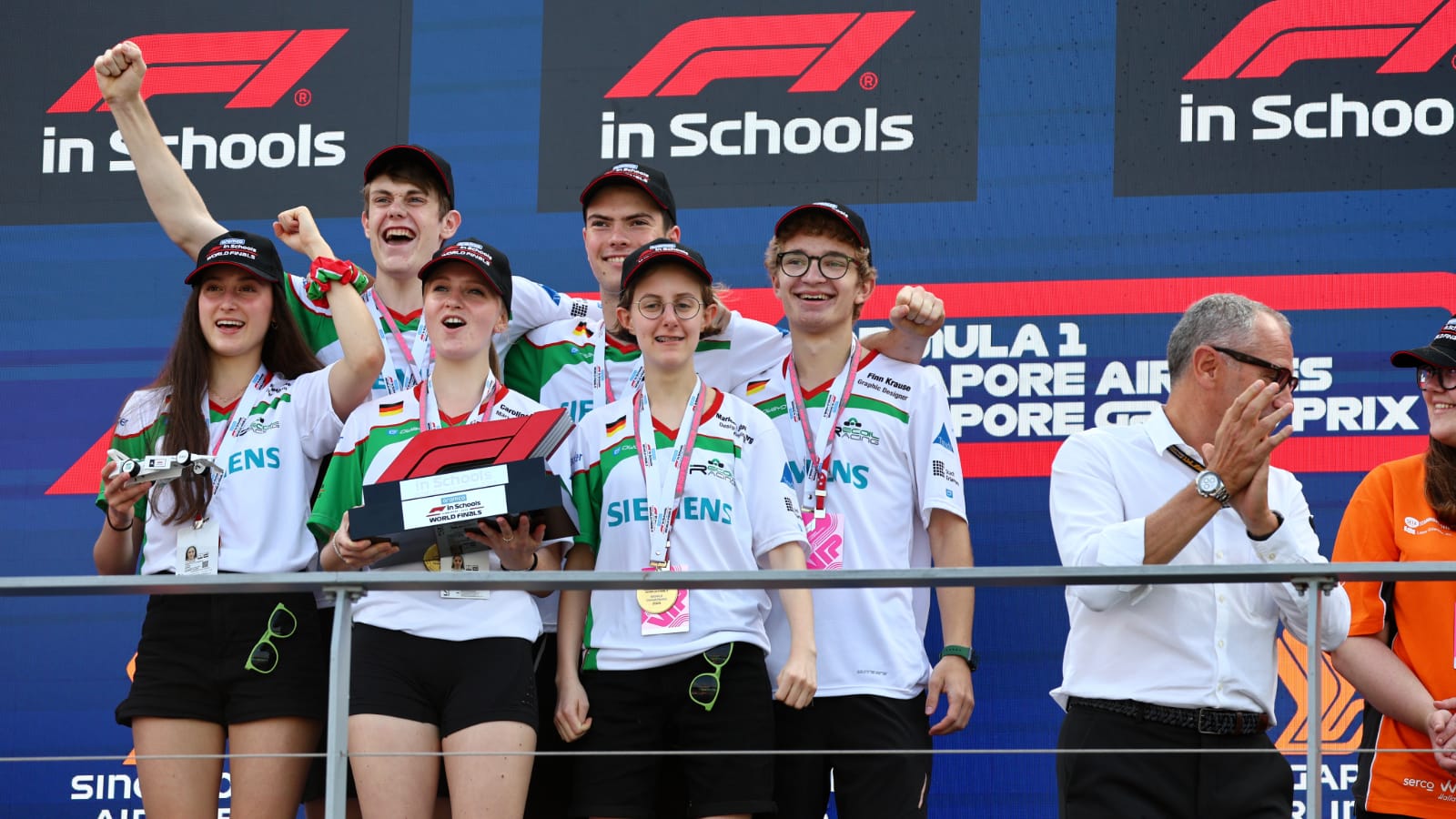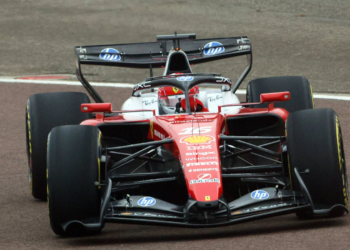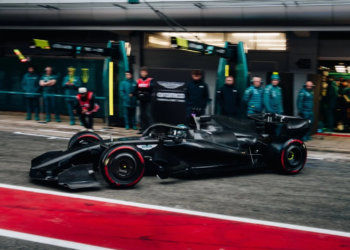The high-octane world of motorsport has long been associated with speed, precision, and cutting-edge technology. From Formula 1 to rally racing, motorsport is a proving ground for engineering innovation and ingenuity. The technologies developed for racing cars often trickle down into everyday vehicles, impacting the automotive industry as a whole. Beyond just the commercial aspects, motorsports play a crucial role in shaping engineering education by providing real-world applications of technical concepts and offering hands-on learning experiences.
Bridging the gap between theory and practice
One of the most significant ways motorsports influence engineering education is by serving as a bridge between theoretical learning and practical application. Motorsport-related projects, both within the classroom and in extracurricular activities, provide students with tangible examples of how these theories apply to vehicle design and performance.
Programs like Formula SAE, where students design, build, and race a small-scale formula-style car, allow students to experience the entire engineering process, from initial design to final testing. They gain hands-on experience in areas such as aerodynamics, suspension design, and engine optimization. This involvement helps them understand the complexities and trade-offs involved in engineering decisions, which is something that textbooks alone cannot convey. Through these experiences, motorsport has become more than just a competitive sport; it has become an educational tool that brings engineering concepts to life.
Building essential skills beyond the classroom
While motorsport projects provide technical knowledge, they also help students develop essential soft skills that are critical in engineering careers. Participation in motorsport programs, especially team-based initiatives like Formula SAE, requires effective communication, project management, teamwork, and time management. Students must collaborate across different disciplines, from mechanical and electrical engineering to marketing and finance, to bring a race car from concept to reality.
Balancing academic responsibilities with motorsport projects can be challenging. Many students find themselves working long hours in the garage, fine-tuning their car while juggling coursework and other commitments. In this demanding environment, students learn to prioritize tasks, set realistic goals, and meet tight deadlines. Some even turn to academic support, telling peers, “I need someone to write papers for me,” to free up more time for their motorsport projects. This aspect of their experience teaches them how to allocate resources efficiently—an invaluable skill in the professional world, where engineers often have to manage multiple projects simultaneously.
Moreover, the collaborative nature of motorsport projects mimics the team dynamics found in the industry. Students learn how to communicate their ideas effectively, present technical reports, and work through disagreements to find the best solutions. These experiences prepare them to function in interdisciplinary teams, a common scenario in the automotive and motorsport sectors, where engineers, designers, data analysts, and marketing professionals must work in tandem.

Motorsport-inspired curricula: advancing engineering education
In response to the influence of motorsports, many engineering schools have incorporated motorsport-related topics into their curricula. Courses on vehicle dynamics, aerodynamics, and powertrain systems often use motorsport as a case study to illustrate key principles. For example, students might study the aerodynamic features of a Formula 1 car to understand concepts like drag reduction, downforce, and airflow management. Similarly, engine optimization courses may include lessons on turbocharging and hybrid powertrains, as seen in modern motorsport.
Some universities have even established specialized programs or tracks in motorsport engineering. These programs focus on areas such as vehicle design, data acquisition, and race car simulation, providing students with a comprehensive education tailored to the motorsport and automotive industries. By aligning the curriculum with industry needs, these programs equip students with the skills and knowledge required to excel in their future careers.
Driving technological innovation and sustainability
Motorsport is not only a showcase for high-performance engineering but also a catalyst for technological innovation. The drive to achieve faster lap times, better fuel efficiency, and enhanced safety in motorsport often results in the development of new technologies that eventually find their way into consumer vehicles. Engineering students involved in motorsport projects are exposed to cutting-edge technologies such as advanced composites, electric and hybrid powertrains, and data acquisition systems.
In recent years, the focus on sustainability in motorsport has introduced students to eco-friendly technologies and practices. Competitions like the Shell Eco-marathon challenge students to design ultra-efficient vehicles, fostering an understanding of energy management, lightweight materials, and aerodynamics. This emphasis on sustainability in motorsport provides engineering students with insights into the future of the automotive industry, where environmental concerns are increasingly shaping vehicle design and manufacturing processes.
By engaging in motorsport projects, students are at the forefront of exploring innovative solutions, from regenerative braking systems to alternative fuels. They learn to approach engineering challenges with a mindset of sustainability and efficiency, preparing them to address the evolving demands of the industry.
Career pathways: from university garages to the racing world
The influence of motorsports on engineering education extends beyond the classroom and research labs. For many students, involvement in motorsport programs becomes a stepping stone to a career in the automotive or motorsport industry. Companies involved in racing, including car manufacturers and race teams, actively seek graduates with hands-on experience in vehicle design, data analysis, and project management.
Being part of a motorsport team demonstrates to employers that students possess practical skills, work effectively in teams, and can handle high-pressure environments—qualities that are highly valued in the racing industry. Graduates with motorsport experience are often well-prepared for roles in vehicle design, performance engineering, aerodynamics, data analysis, and more. Moreover, the network and connections students build through competitions and industry partnerships provide valuable career opportunities.

Preparing engineers for a changing industry
The automotive and motorsport industries are undergoing rapid changes driven by advancements in electric vehicles, autonomous driving, and digital technologies. By participating in motorsport projects, students gain exposure to these emerging trends and the skills needed to navigate this dynamic landscape.
For instance, electric racing series such as Formula E have become a hub of innovation, exploring technologies like battery management, electric powertrains, and energy recovery systems. Engineering students involved in these projects acquire specialized knowledge that is directly applicable to the broader electric vehicle market. Similarly, the increasing use of data analytics in motorsport teaches students how to leverage data for performance optimization—a skill set that is in high demand across various engineering sectors.
Conclusion
Motorsport’s influence on engineering education is profound, providing students with a platform to apply their theoretical knowledge, develop practical skills, and innovate within a dynamic environment. Through hands-on projects, motorsport-inspired curricula, and exposure to cutting-edge technologies, students are not only prepared for careers in racing but also equipped to drive technological advancements in the automotive industry.
From designing aerodynamically efficient cars to mastering the complexities of data analysis, motorsport pushes engineering students to excel, innovate, and adapt. As the industry continues to evolve, the integration of motorsport into engineering education will remain an essential catalyst for developing the next generation of engineers who will shape the future of automotive technology.







Discussion about this post